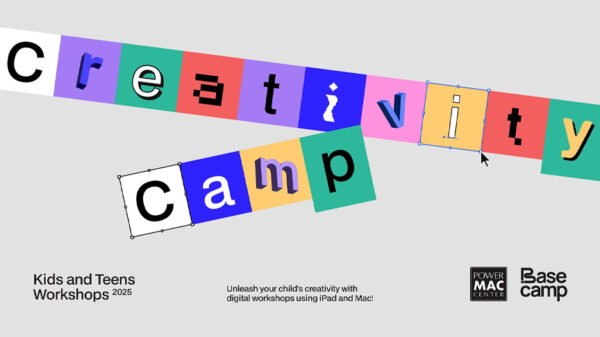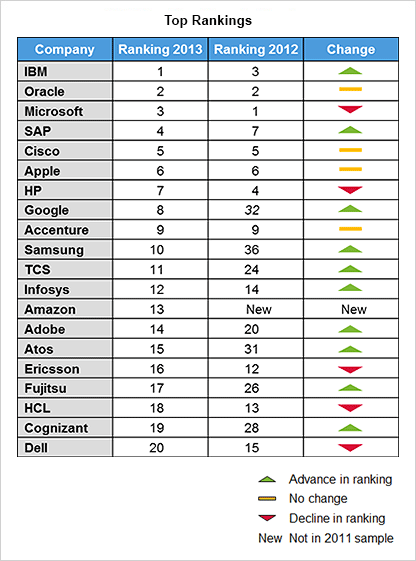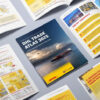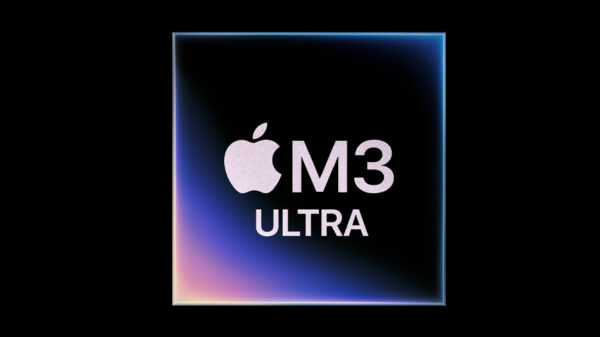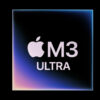The world’s top technology companies continue to jostle for position in the rapidly evolving digital landscape, according to Booz & Company’s second annual ranking of the world’s top 50 Information and Communications Technology (ICT) companies that provide the building blocks to increasingly digital businesses.
There was a shake-up at the top of the rankings: Microsoft was bumped out of the top spot, dropping to #3, Oracle held fast at #2, while IBM leapfrogged from #3 to claim the top spot, fuelled by its strong product and service portfolio and global presence.
“This volatility is not surprising given the vast changes sweeping this sector. Digitization is a business imperative and these companies are being forced to rapidly transform their business models, product portfolios, service offerings and global footprints in order to stay one step ahead of their clients’ needs. Add to this financial pressures in an uncertain economy, and the fact that boundaries are gone and more players are competing for overlapping, converged markets, and it’s no wonder new winners are emerging,” says Henning Hagen, partner at Booz & Company.
The study finds that software and Internet companies and hardware and infrastructure providers are dominating the ICT industry, claiming the majority of spots in the top 20.
Integrated solution models are continuing to gain ground over IT services, especially those IT service providers with more traditional outsourcing and managed services businesses.
Several software and Internet businesses are making big advances, including SAP, which jumped three spots, to #4, Google, which moved up to #8, and Amazon, which debuted in the top 50 for the first time at #13, driven by its rapidly growing cloud services business.
Dell and HCL took the biggest falls, each dropping five spots, to #20 and #18, respectively
“This market is going through dynamic changes; primarily because so many companies are expanding and reshaping their portfolios and pushing for global scale and reach at the same time. As a result, many smaller IT service providers are under pressure, being acquired or disappearing completely. On the other hand, ‘digital first’ players like Amazon are coming in with integrated solutions or compelling cloud offerings. We will see even more convergence in the future, and the winners will be those who can build integrated solution ecosystems around an innovative software or hardware core,” says Florian Groene, a principal at Booz & Company.
This year’s Global ICT 50 companies took in total revenues of US$2.07 trillion, a 3 percent increase over the prior year’s US$2.01 trillion, and a slight slowdown in growth compared to the previous year. Average margins remained steady at 15 percent. Software and Internet companies (e.g., Adobe, Google, Microsoft, SAP) and offshore IT service companies (e.g., TCS, Infosys, HCL, Cognizant) were the only two groups to achieve double-digit revenue growth for the fifth straight year
The same two groups saw stagnating to declining EBIT margins, albeit on a very healthy >20% level, which suggests early signs of business model maturity and increasing competition.
Hardware and infrastructure companies claimed the middle ground in financial performance, achieving continuous margin improvement and stable growth over the past five years, while global IT service providers and telecom companies were the weakest performers.




